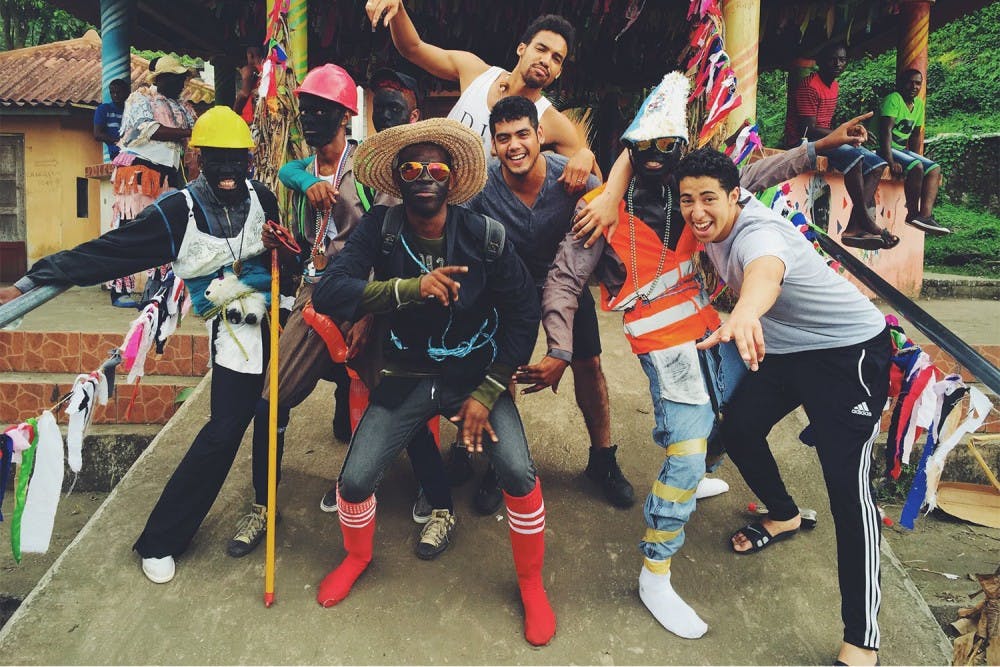The program, Spanish for “Black Christ, White Devil,” will be performed in Swain Hall on Saturday.
ARTVSM — art and activism — members Pierce Freelon, Herrison Chicas and Saul Flores will perform with Panamanian artists Gustavo and Jairo Esquina de la Espada. Gustavo will show art while Jairo dances and emcees.
The show delves into the rich history and culture of Portobelo, which was a stop in the trans-Atlantic slave trade and is now home to many people of African descent. When Freelon, co-founder of Chapel Hill’s Beat Making Lab, initially visited in 2013, he was inspired to return with Chicas and Flores to collaborate with local artists.
“When I’m in Portobelo, I see people who look like me, but the only difference is that my ancestors ended up in North America and not South America like theirs,” said Freelon, musician and lecturer in the UNC Department of African, African American and Diaspora Studies.
Using his experience with the Beat Making Lab, Freelon turned his love of hip-hop music and beats into a means for activism and expression.
“Pan-African solidarity — that’s what I want people to come away with,” he said. “This story illuminates the extent that African Americans, Caribbeans and South Americans were apart of the same African diaspora — all groups that share similar struggles and experience.”
The namesake of the show is a life-size statue of Cristo Negro that stands in the middle of Portobelo that people from around the world make pilgrimages to see. The dark-skinned statue exemplifies a different approach to the traditional historical depiction of Jesus Christ as white.
The Diablo Blanco originates in the Festival de Diablos y Congos, which is Spanish for “Festival of Devils and Africans.” People dress up and wear white devil masks to represent white slaveholders and colonizers — an old tradition that was created decades ago.



